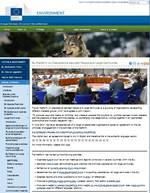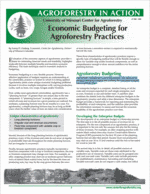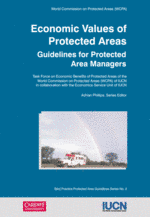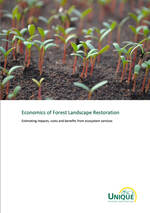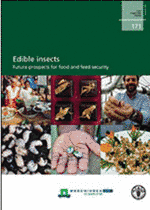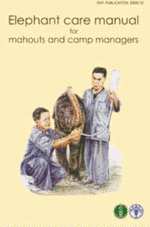Tools
A tool is a resource that supports and guides the implementation of SFM. This section includes all the tools available in the SFM Toolbox, which can be in form of publications, e-learning videos, software etc.
You can browse the Tools through keywords in the free search box or you can narrow the search using the filters on the right side of the page.
The Department of Earth Sciences of the Freie University of Berlin created the E-Learning Platform for Integrated Watershed Management, to promote the Integrated Watershed Management approach, through the analysis and description of all its components.
Integrated Watershed Management is a holistic and integrated approach for sustainable management of a watershed...
This section of the FLEGT Programme website is specifically dedicated to multimedia and host two videos on FLEGT activities. The first video provides valuable information on the ongoing implementation of the FLEGT Action Plan along the timber supply chain - from harvest in the tropical rainforest of the Congo Basin,...
This EU Platform is the result of a grouping of EU organizations aimed to promote ways to minimize, and if possible find solutions to, conflicts between human interests and presence of large carnivores. As part of this objective the Platform has develop several tools, gathered and analysed cases studies on...
There are many different techniques and methods utilized in planting mangroves. Because some of these have resulted in identifable successes or failures, we wish to present herein a detailed process of mangrove rehabilitation which has proven successful in its application in various locations at various scales. This EMR manual also...
Evaluation of the economic aspects of agroforestry provides a basis for estimating financial needs and feasibility, highlights trade-offs between multiple benefits and monitors economic efficiency. The main technique used in economic analysis is budgeting.
Economic budgeting is a very flexible process. However, effective application of budgets requires an understanding of the...
The debate over environmental protection is often about the balance between leaving areas in their natural or near-natural state, and developing and exploiting them. This choice is fraught with tension – for example should a forest be left uncleared, or logged and converted to agriculture? Should wetlands and mangroves be...
This report has developed an easily applicable economic framework, helping stakeholders to develop a customized decision-making tool. Consisting of standalone modules and methods, it offers both private and public actors differentiated means of estimating values. Tailored cost-benefit analyses can help a variety of different target groups in their decision-making: from...
The subject of edible insects inherently covers a
wide range of thematic areas, from the conservation of habitats where insects are harvested to insect ecology, the artificial rearing of insect species, the processing of insects into food and feed products, and the labelling and marketing of insect-based food and feed...
This course offers guidance on the typical approaches and calculations used in forest data analyses and related topics.
This course is primarily intended for people who are involved in NFIs but can be taken by anyone with an interest in the subject. Specifically, this course targets: Forest technicians responsible for implementing...
This manual represents the latest collaboration in a long and fruitful relationship between the Forest Industry Organization of Thailand and the FAO Regional Office for Asia and the Pacific to improve the conservation, management and welfare of the Asian elephant. The English edition is a mirror version of the Thai...



